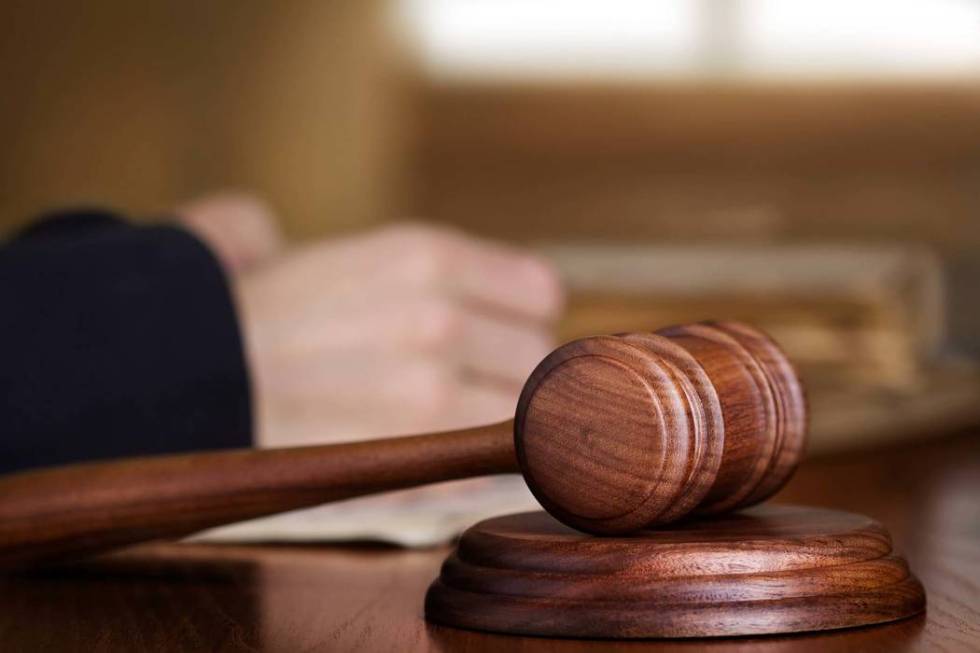Judge: Federal wagering law only applies to sports gambling

Nevada’s gaming industry can take a sigh of relief after a federal judge ruled Monday that a law prohibiting interstate wagering applies only to sports gambling.
Judge Paul Barbadoro’s ruling sets aside a Justice Department opinion that some states feared would make online lottery activities illegal and put the programs they fund at risk.
“The Nevada gaming industry can rest easier that both mobile sports wagering and Internet poker are not in immediate danger of being closed down,” Tony Cabot, a professor at UNLV and a former gaming attorney, said via email. “Moreover, the Interstate Poker Compacts that allow Nevada casinos to operate in conjunction with poker operations in other states is safe for the time being.”
State Gaming Control Board Chairwoman Sandra Morgan said the ruling is a good thing for Nevada and other states that have legalized gaming.
“This would have directly affected the multistate internet agreement for interactive poker, so we’re very pleased with the decision.”
The judge’s decision comes in response to a lawsuit filed by the New Hampshire Lottery Commission, which said a Justice Department opinion issued last year subjects its employees to prosecution, creates uncertainty about whether it should cease operations, and could cost the state more than $90 million a year.
The case revolves around the Wire Act, a 1961 law meant to target the mob that prohibits interstate wagering. Decades later and with the internet ruling everyone’s lives, New York and Illinois asked the Obama administration whether selling lottery tickets online violated the law.
The department in 2011 concluded that online gambling within states that does not involve sporting events would not break the law. But the agency changed its mind in November, interpreting the act as applying to any form of gambling that crosses state lines, not just sports betting. Some feared that, if strictly interpreted, that opinion would outlaw lottery tickets sold online and prohibit all lottery-related activities that use the internet.
That raised concerns about the viability of online poker and other gambling across states, as well as state lotteries. Money from lotteries typically funds a variety of programs, from education to senior citizen services.
On Monday, Barbadoro said New Hampshire had the standing to sue and that the Wire Act was limited to sports gambling.
“Today’s ruling is a historic victory for the State of New Hampshire and we are proud to have led this effort,” said Gov. Chris Sununu. “New Hampshire stood up, took action, and won — all to protect public education in our state.”
But Cabot said it’s not the end of the road for the Wire Act. The Department of Justice can — and most likely will — appeal the decision to the First Circuit Court of Appeals. If they lose, they could then seek an appeal at the U.S. Supreme Court.
It won’t be an easy argument. Cabot said the New Hampshire Federal District Court’s decision was persuasive and well-reasoned and the 2011 interpretation was a fair and logical reading, while the 2018 Department of Justice opinion “strained logic.”
Chris Grove, a managing director at Eilers & Krejcik Gaming, said while the decision does give comfort to states like Nevada, it leaves some questions open.
“The broader question of whether or not online gambling can truly be interstate — and therefore removed from federal jurisdiction — was not addressed by the decision,” he said via email. “That question will be a critical one as the discussion between states and the federal government around legal online gambling continues to evolve.”
Contact Bailey Schulz at bschulz@reviewjournal.com or 702-383-0233. Follow @bailey_schulz on Twitter. Review-Journal staff writer Richard N. Velotta and The Associated Press contributed to this report.